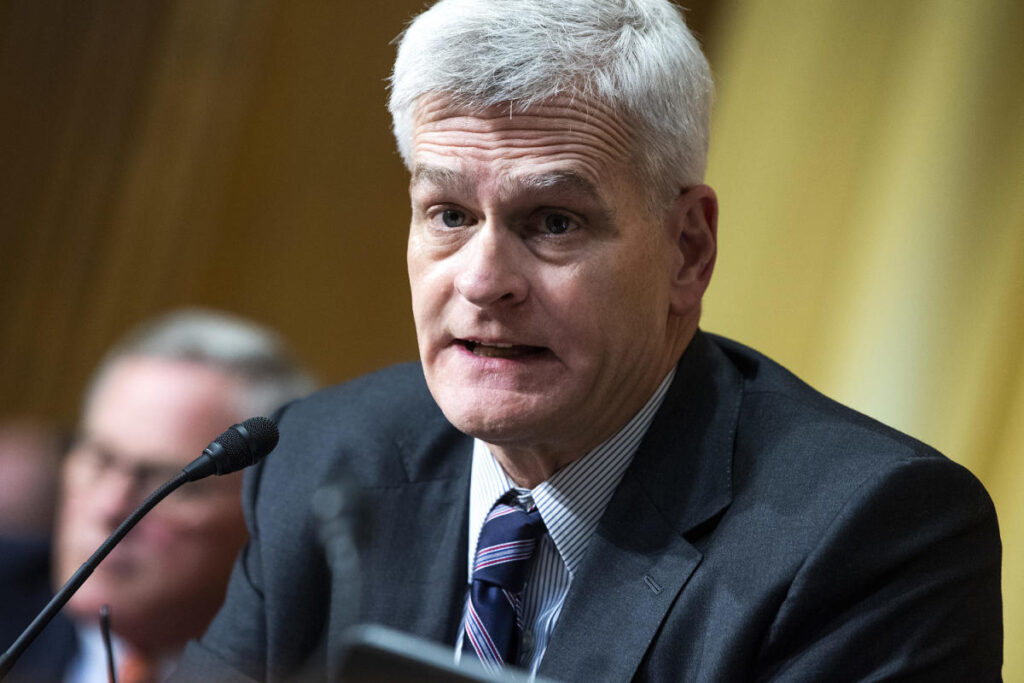Senator Bill Cassidy of Louisiana, a Republican currently in his second term, is set to face primary challenges in the 2026 elections, with Louisiana Treasurer John Fleming being the first to announce his candidacy. Fleming’s decision to run stems from dissatisfaction with Cassidy’s decision to vote for the conviction of former President Donald Trump during his impeachment trial in early 2021. In a statement, Fleming expressed that Cassidy has not met the expectations of Louisiana voters, emphasizing his belief that those who abandon Trump’s America First agenda are disconnected from the prevailing sentiments of the residents they represent. He criticized Cassidy for what he perceives as a lack of commitment to Trump’s vision for the country.
John Fleming, previously a member of Congress, represents a faction within the Republican Party that remains loyal to Trump despite the controversies surrounding him. He explicitly criticized Cassidy’s votes and actions that diverged from Trump’s agenda, suggesting that the senator’s political career may be out of touch with the values and priorities of Louisiana’s conservative electorate. Fleming positioned his campaign as a return to these core America First principles, arguing that many Republicans who distanced themselves from Trump have failed to listen to their constituents’ needs.
Cassidy’s campaign spokesperson, Joe Ramallo, contested Fleming’s motivations for entering the race. Ramallo highlighted that Fleming had expressed interest in joining the Trump administration and insinuated that his bid for the Senate is merely an opportunistic move after being unsatisfied in his current role as State Treasurer. This response indicates that internal Republican conflicts may intensify as the election approaches, revealing rifts within the party over loyalty to Trump and differing visions for the future.
Although Cassidy has not officially declared his intention to seek re-election, he has indicated that he is actively preparing for the upcoming election cycle. His status as one of the few Republican senators who voted to convict Trump has placed him in a unique position, particularly in a state like Louisiana, which remains solidly Republican and has consistently supported Trump in past elections. The dual challenges from within his party highlight the ongoing divisions over Trump’s legacy and the influence of his policies on Republican candidates.
Fleming has also emphasized his past experience serving as a senior adviser to Trump during his presidency, seeking to leverage this affiliation as a credibility boost to appeal to the Republican base. His campaign aims to resonate with voters who are nostalgic for the Trump administration’s policies, positioning his expertise and past government experience as assets in his Senate candidacy. Fleming’s focus will likely revolve around endorsing the ideals of the America First movement while rallying support from loyal Trump supporters in Louisiana.
As the 2026 election draws nearer and the primary process begins, the race between Cassidy and Fleming will serve as a barometer for the shifting dynamics within the Louisiana Republican Party and the broader national discourse on Trump’s impact on the GOP. Cassidy’s moderate stance may attract some voters, but Fleming’s campaign reflects a push for a more hard-line commitment to Trump’s agenda, indicating that the primary could significantly shape the future of Louisiana’s representation in the Senate. The outcomes of these competing narratives will ultimately hinge on the sentiments of Louisiana’s conservative electorate as they navigate their options in a post-Trump political landscape.

